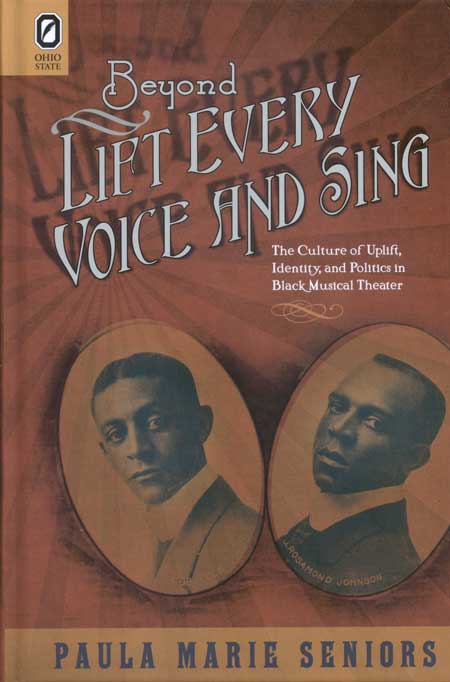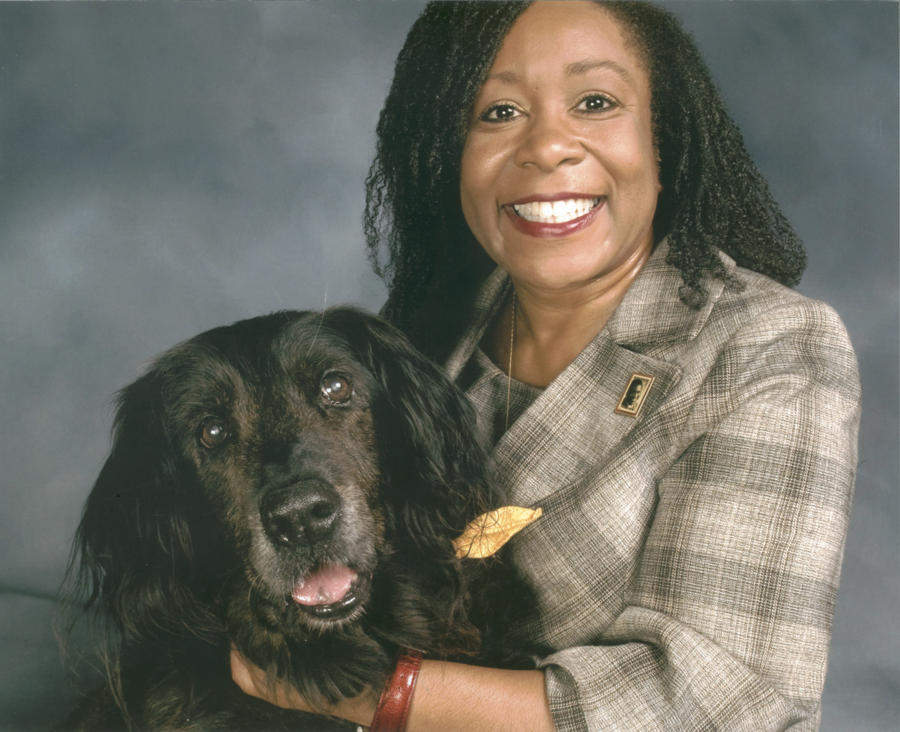|
Letitia Woods Brown Memorial Prize 2009 Beyond Lift Every Voice and SingThe Culture of Uplift, Identity, and Politics in Black Musical TheaterPaula Marie SeniorsBlack Performance and Cultural Criticism |
 6/12/2009 Literary Criticism/Drama; Literary Criticism/African American 292 pp. 6x9  $39.95 paper 978-0-8142-5479-0 Add paper to shopping cart Shopping Cart Instructions Review/Change Shopping Cart & Check-out | |||
|
Explore More Center for Black Music Research Schomburg Center for Research in Black Culture (New York Public Library) |
“Beyond Lift Every Voice and Sing is an engaging and outstandingly well-researched study. Paula Marie Seniors has unearthed material that has heretofore been thought to have been lost. The book will serve scholars and historians interested in the social and cultural history of the period, particularly theater historians, who will find new and illuminating information.” —David Krasner, associate professor of performing arts, Emerson College “Utilizing a variety of primary and secondary sources, Paula Marie Seniors’s scholarship is in conversation with a number of debates, including modernity, masculinity, cultural performance, and race relations at the turn of the century. Her grounding of the work of J. Rosamond Johnson, James Weldon Johnson, and Bob Cole within the age of Booker T. Washington’s Black nationalism makes this book a must read for students and scholars in American cultural studies, drama and theater courses, and Black studies classes that focus on the ‘New Negro.’” —Ula Taylor, associate professor of African American studies, University of California, Berkeley Paula Marie Seniors’s Beyond Lift Every Voice and Sing is an engaging and well-researched book that explores the realities of African American life and history as refracted through the musical theater productions of one of the most prolific black song-writing teams of the early twentieth century. James Weldon Johnson, J. Rosamond Johnson, and Bob Cole combined conservative and progressive ideas in a complex and historically specific strategy for overcoming racism and its effects. In Shoo Fly Regiment (1906–1908) and The Red Moon (1908–1910), theater, uplift, and politics collided as the team tried to communicate a politics of uplift, racial pride, gender equality, and interethnic coalitions. The overarching question of this study is how roles and representations in black musical theater both reflected and challenged the dominant social order. While some scholars dismiss the team as conformists, Seniors’s contention is that they used the very tools of hegemony to make progressive political statements and to create a distinctly black theater informed by black politics, history, and culture. These men were writers, musicians, actors, and vaudevillians who strove to change the perception of African Americans on stage from one of minstrelsy buffoonery to one of dignity and professionalism.
| |||


